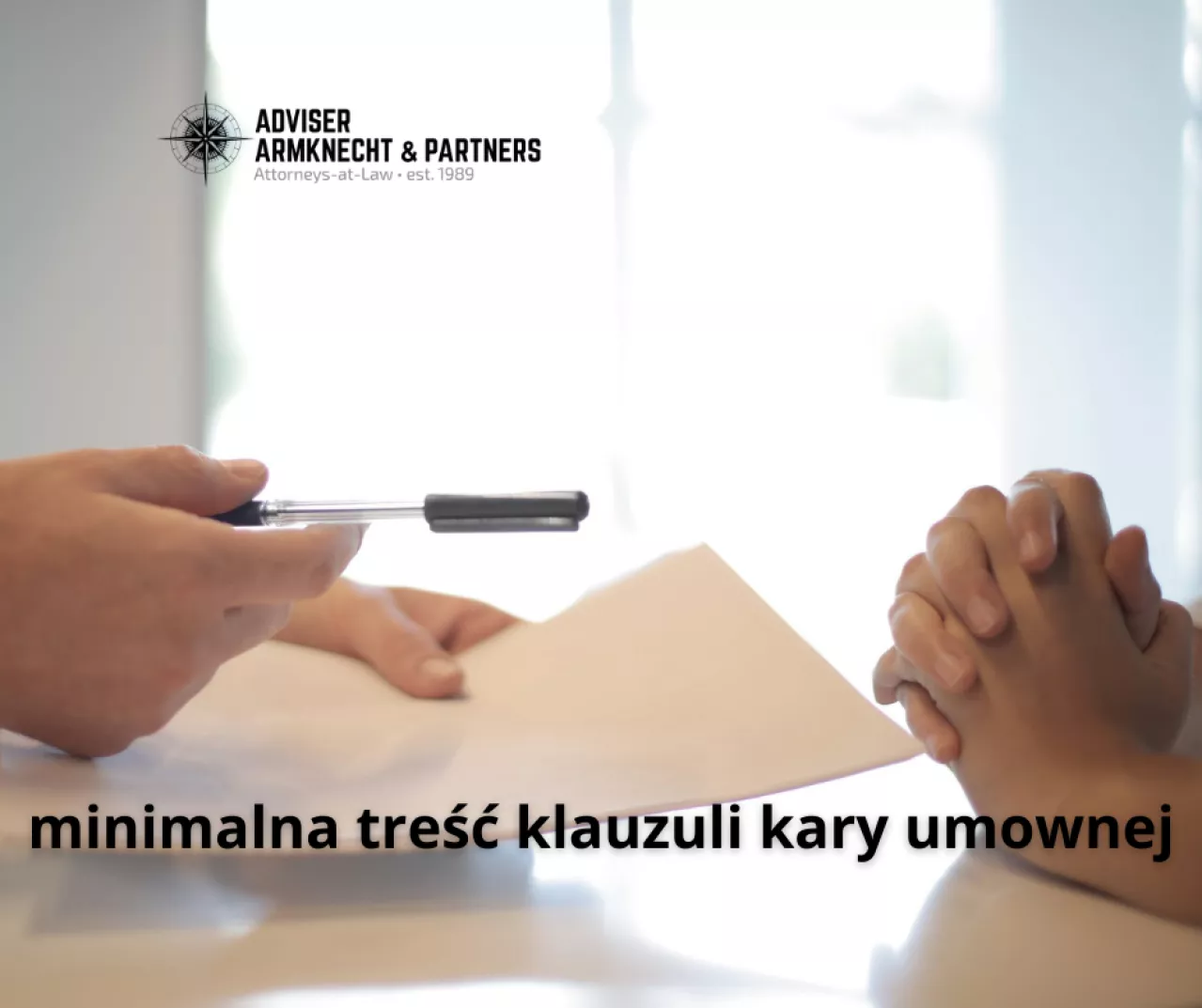W dniu 20 maja 2021 r. Sąd Najwyższy rozpoznając sprawę o sygn. akt IV CSKP 58/21 (publ. SIP Lex nr 3208506) wydał wyrok w którym określił minimalną treść klauzuli umownej kreującej obowiązek zapłaty kary umownej.
Kara umowna jest to zastrzeżenie umowne kreujące obowiązek naprawienia szkody wynikłej z niewykonania lub nienależytego wykonania zobowiązania niepieniężnego przez zapłatę określonej kwoty pieniężnej. W przedmiotowej sprawie strony zawarły umowę o roboty budowlane zastrzegając w jej treści karę umowną w wysokości 0,2% wartości przedmiotu umowy z podatkiem VAT za każdy dzień zwłoki z tytułu nieterminowego usunięcia wad stwierdzonych przy odbiorze oraz w okresie gwarancji i rękojmi. W skardze kasacyjnej skarżący podniósł, że tak ukształtowane postanowienie umowne nie spełnia wymogów art. 483 § 1 k.c., nie została w nim bowiem definitywnie określona suma stanowiąca karę umowną.
W orzeczeniu Sąd Najwyższy wskazał, że minimalną treść klauzuli kary umownej określa art. 483 § 1 k.c., natomiast granice kształtowania tej treści wyznacza 3531 k.c. Do koniecznych elementów ważnej klauzuli umownej kreującej obowiązek zapłaty kary umownej zaliczyć należy określenie zobowiązania (albo pojedynczego obowiązku), którego niewykonanie lub nienależyte wykonanie rodzi obowiązek zapłaty kary oraz określenie sumy pieniężnej mającej stanowić naprawienie szkody wynikającej z niewykonania lub nienależytego wykonania zobowiązania (art. 483 § 1 k.c.). Strony umowy korzystają ze swobody w oznaczeniu sumy stanowiącej karę umowną (3531 k.c.), ich ustalenia muszą być jednak na tyle precyzyjne, aby umożliwiały obiektywne jej oznaczenie, a naruszenie tej zasady będzie skutkować sankcją nieważności tego zastrzeżenia umownego (art. 58 § 3 k.c.). Strony nie mogą zatem przyjąć konstrukcji prawnej zakładającej ustalenie w przyszłości podstawy naliczania kary umownej. Nie spełnia wymogu oznaczoności kary określenie jej przez odwołanie się nie do stałego lecz ocennego miernika wartości. Sąd Najwyższy podkreślił ponadto, że kara umowna za zwłokę, która ma w założeniu pełnić przede wszystkim funkcję stymulującą dłużnika do wykonania zobowiązania, może być ustalona według stawki odniesionej do określonego interwału czasowego (dzień, tydzień), która może zostać określona, jako ułamek (procent) wartości przedmiotu umowy.
Nadto Sąd Najwyższy zwrócił uwagę na fakt, że funkcję limitującą możliwość naliczania kary umownej dodatkowo pełni przedawnienie. Roszczenie o karę umowną za zwłokę w terminowym usunięciu wady przedmiotu umowy o roboty budowlane, naliczaną za każdy dzień zwłoki, staje się wymagalne w pierwszym dniu po upływie terminu do usunięcia wady (art. 120 § 1 w zw. z art. 471 k.c.) Kara taka nie może być zatem skutecznie naliczana po upływie terminu przedawnienia na wykonanie przez dłużnika zobowiązania polegającego na usunięciu wad stwierdzonych w wykonanych robotach budowlanych w okresie rękojmi i gwarancji, skoro może on podjąć obronę przez podniesienie zarzutu przedawnienia (art. 117 § 2 k.c.).
#prawoumów #prawo budowlane #Adviser1989


 Wstecz
Wstecz 
